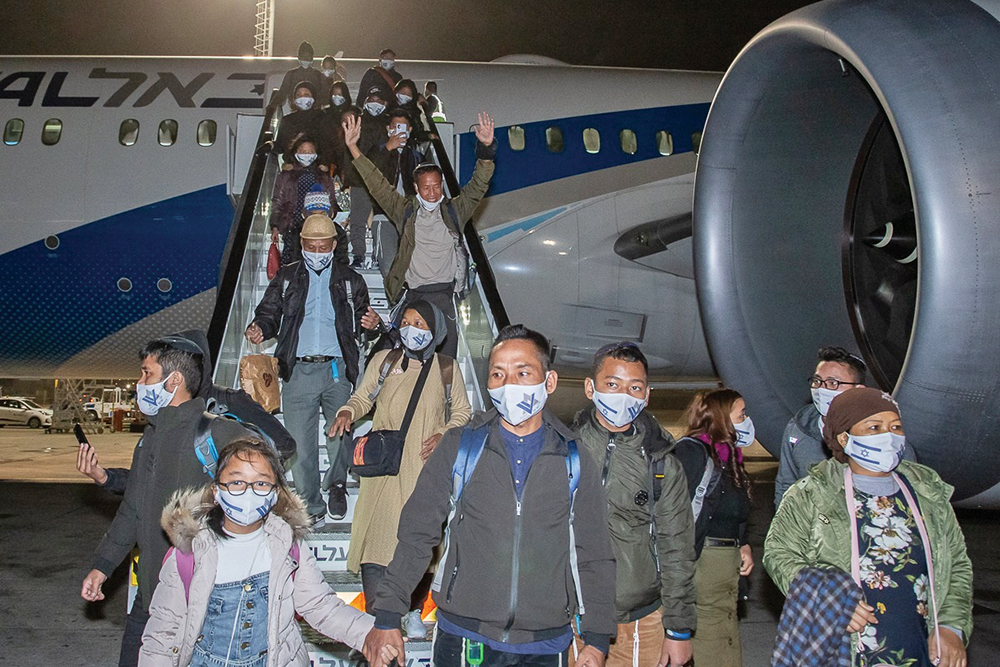
When King Solomon died, Israel was divided into two mini states. In 930 BCE, 10 of the 12 tribes of Israel—Asher, Dan, Ephraim, Gad, Issachar, Menashe, Naphtali, Reuben, Simeon and Zebulun—formed the independent kingdom of Israel in the north. Two tribes, Judah and Benjamin, formed the kingdom of Judah in the south.
In 722/721 BCE, the northern kingdom of Israel was destroyed following its conquest by the Assyrians, and the 10 tribes were taken into captivity, disappearing from history and becoming the legend of the “Ten Lost Tribes of Israel.” However, there persisted a belief that one day the ten tribes would be found.
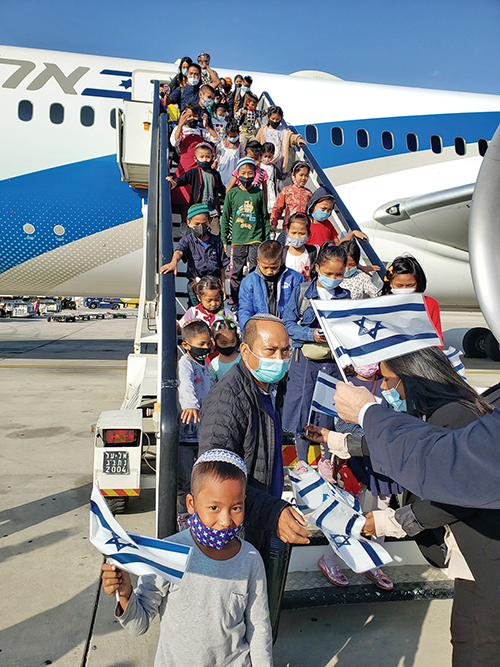
Since the late 20th century, some tribes living in northeast India have claimed to be Bnei Menashe, one of those “lost tribes.” While at one time it was possible to visit this region, today the situation has become much too dangerous due to political unrest. Currently, India’s Bnei Menashe community is in crisis.
In India, Shavei Israel, a nonprofit organization dedicated to assisting descendants of Jews and the Lost Tribes of Israel in reclaiming their roots, has opened a relief center to assist more than 1,100 Bnei Menashe. The organization’s local staff, together with others dispatched from Israel, have been arranging temporary shelter for families and have been distributing food and other relief packages.
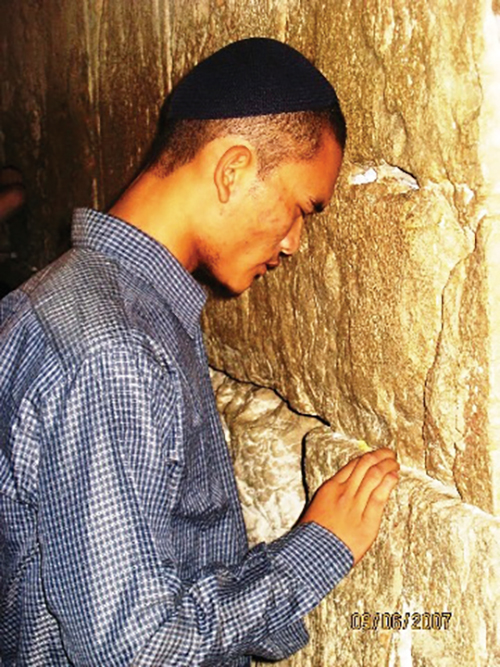
(Courtesy of Shavei Israel)
Shavei Israel has received support from UJA-Federation of New York, the Jewish Agency for Israel, Christians for Israel and various other groups.
According to Rabbi Michael Freund, founder and chairman of Shavei Israel, there are still 5,000 Bnei Menashe living in India. “All of them have a strong desire to make aliyah in order to reconnect with the Jewish people and the Land of Israel,” he said. “Our goal is to ensure that every member of the Bnei Menashe who wishes to make aliyah will be able to do so.”
Rabbi Freund founded Shavei Israel two decades ago with the aim of reaching out to lost tribes and other descendants of Jews worldwide to assist them with returning to their roots.
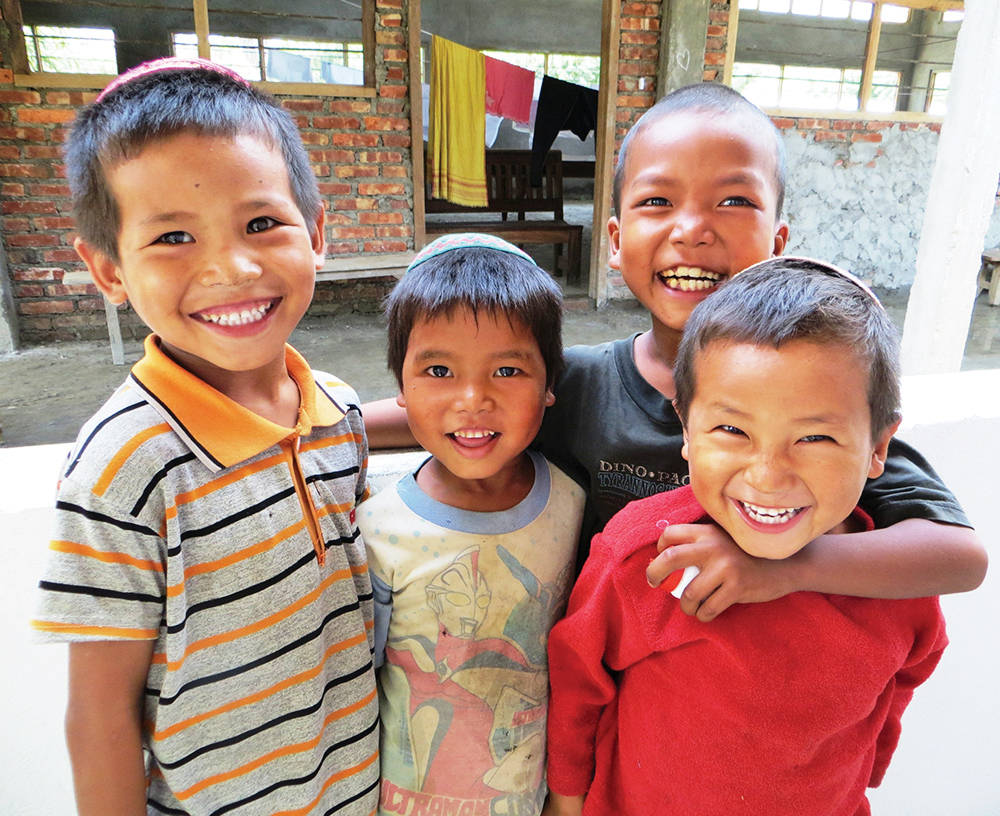
“What prompted me to start Shavei was a letter I came across while working in the Israeli prime minister’s office in 1997,” said Rabbi Freund. “A small orange envelope arrived addressed to Prime Minister Benjamin Netanyahu from the leaders of the Bnei Menashe community in northeastern India. Inside was a very heartfelt letter stating that their ancestors were from the tribe of Menashe, one of the Ten Lost Tribes of Israel, and that they had been yearning for Zion for 2,700 years and wished to return…. There was something about the letter that was very emotive and it touched me, so I chose to answer it. It turned out that the Bnei Menashe had been writing to Israeli prime ministers since at least Golda Meir and probably since Ben-Gurion, but had never received a reply.
“I fell in love with them,” Rabbi Freund continued, “because I saw how sincere they were in wanting to be part of the Jewish people and to live in Israel. After learning more about their history, traditions and customs, I became convinced regarding their claim. =… I was able to arrange for large groups of Bnei Menashe to make aliyah and undergo conversion by the Chief Rabbinate. After leaving the prime minister’s office following Israel’s 1999 election, I subsequently established Shavei Israel to work with the Bnei Menashe as well as other communities.
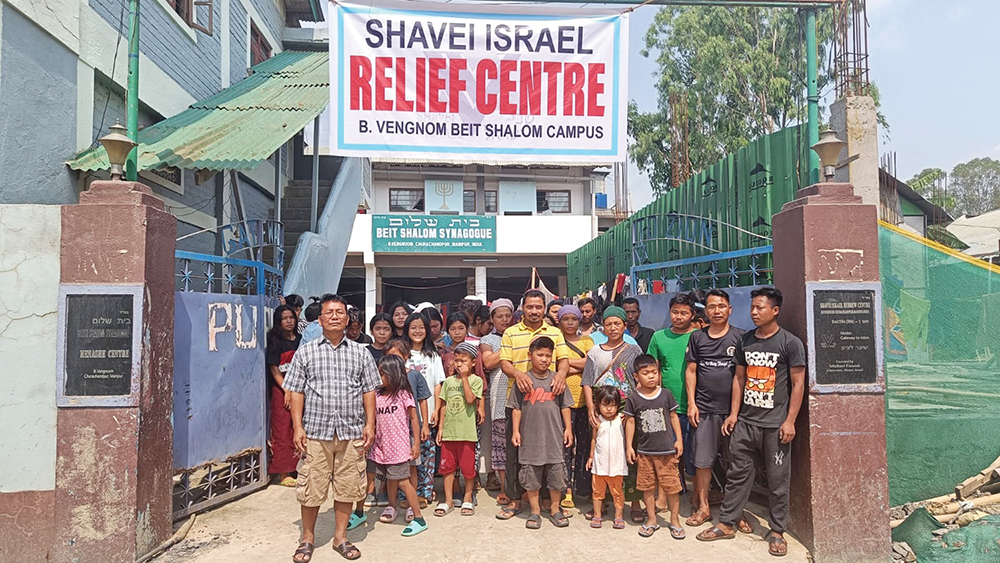
“I believe we have a moral, historical and religious responsibility to reach out to descendants of Jews, embrace them and welcome them back home if that is what they wish,” he added.
“With regard to the Bnei Menashe, I have accompanied many of them on aliyah flights over the years, and a recurring event has always moved me immensely,” said Rabbi Freund. “As the plane approaches Israel, many of the Bnei Menashe lean towards the windows, looking to catch their first glimpse of the Land of Israel, which their ancestors dreamt of for centuries. Some cry, others burst into smiles, and for me it is a powerful reminder of just how fortunate our generation is to live in an age where there is a sovereign Jewish state in our ancestral patrimony.”
Asked by The Jewish Link to tell a personal story about encounters with lost or hidden Jews, Rabbi Freund shared: “Over the years I have been blessed to encounter some truly remarkable people from around the world who have rediscovered their Jewish roots. For me, one of the most moving stories was that of a 64-year-old man named Mariusz in Poland. In April 2013, Shavei Israel organized a shabbaton in the Polish village of Auschwitz. Together with dozens of Poles who had discovered their Jewish roots, we celebrated the Sabbath in the town’s refurbished synagogue, before proceeding on Sunday to visit the death camp nearby. Mariusz drove me there, but when we arrived at the parking lot and got out of his car, he apologized and said that he could not enter the site. When I asked him why, he broke down and wept, telling me that he was a Kohen and could not enter what was in effect a massive Jewish cemetery.
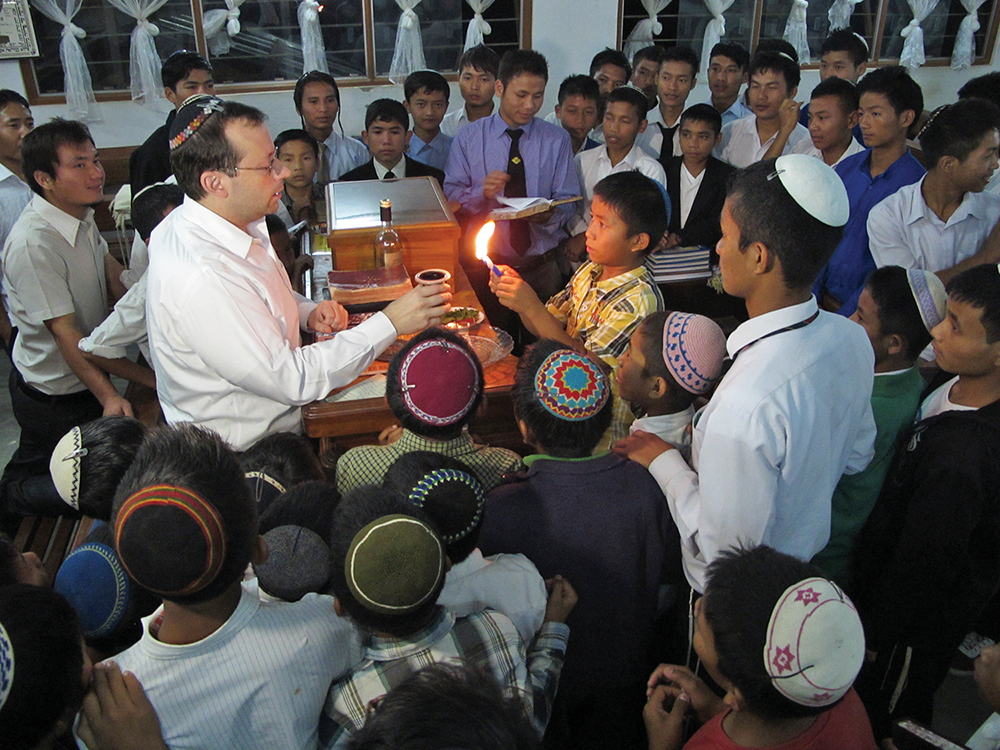
“He then shared with me his personal story. It turned out that on her deathbed 13 years previously, his mother had revealed to him that she and her late husband, Mariusz’s father, were both Jewish and that their families had been murdered in the Holocaust at Auschwitz. She also told Mariusz that his father was a Kohen. When I heard his remarkable story, I told Mariusz that since 13 years had passed since he found out he was a Jew, it would be appropriate for him to have a bar mitzvah. I offered to arrange for the event to take place at the Western Wall in Jerusalem. Mariusz was very much moved by the gesture and agreed. A month later, Mariusz donned his tefillin and was called up to the Torah as a 64-year-old bar mitzvah boy at the Kotel. During the service, he also recited the Priestly Blessing with tears streaming down his cheeks. And I can assure you that he wasn’t the only one.”
The Jewish Link also spoke with Tzvi Khaute, a Bnei Menashe oleh who today is the director of the Bnei Menashe department at Shavei Israel.
“Our ancestors identified and referred to themselves as ‘the lost tribe of Menashe.’ We observed three major festivals—Pesach, Shavuot and Sukkot. We also performed ritual circumcision on the eighth day and observed mourning rituals of shiva and shloshim. We believed in only one God called Pathien in our language; Elokim in Hebrew; the God of Avraham, Isaac and Jacob. We married only within the community … We have our own counting of the weeks and months and have distinct alphabets and also follow a lunar calendar.
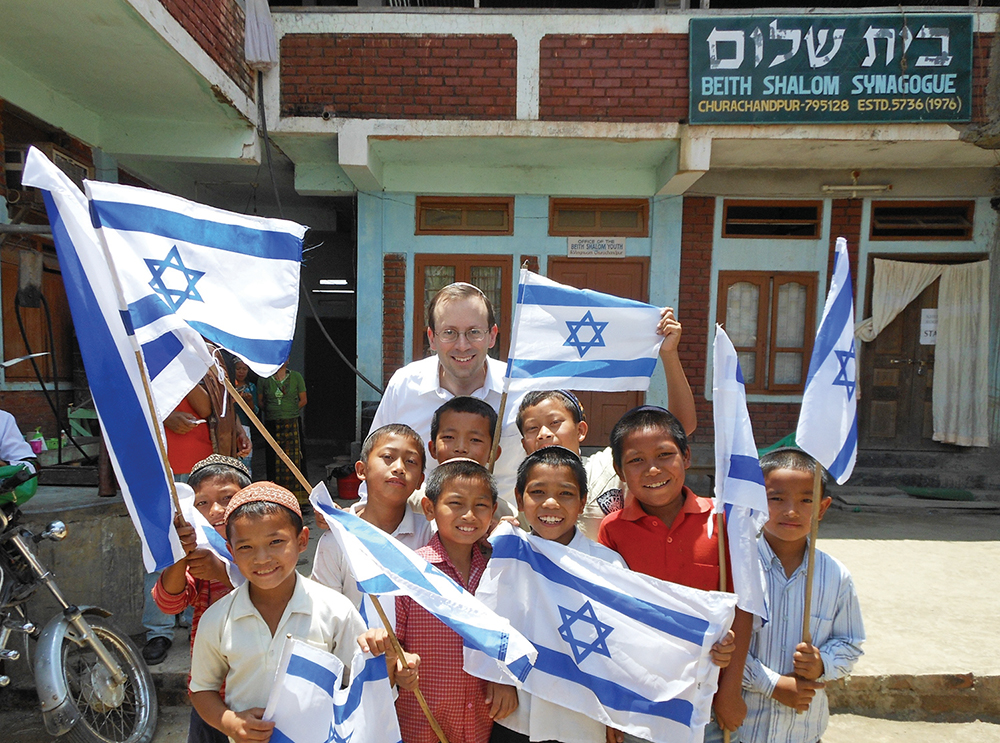
“Completely cut off from the rest of the Jewish nation posed quite a challenge for over 27 centuries, both physically and spiritually, but our ancestors clung to our customs and traditions and passed them down from generation to generation.
“Several decades ago, we started practicing contemporary Modern Orthodoxy, like praying three times a day and observing Shabbat, kashrut, Jewish festivals and family purity in accordance with mainstream Jewish halacha,” Khaute continued. “ Our ancestors were so committed to the Zionist dream that we would one day make it to our ancestral land, the Land of Israel.”
Shavei Israel has lobbied and advocated for many years on behalf of the Bnei Menashe, roaming the halls of the Knesset, meeting with government ministers and making the case for their aliyah. “It is a very complicated process, as the Bnei Menashe do not fall under Israel’s Law of Return, since their Jewish connection goes back 2,700 years,” explained Rabbi Freund. “Hence, we are required to seek a special government decision each time in order to bring a group on aliyah.
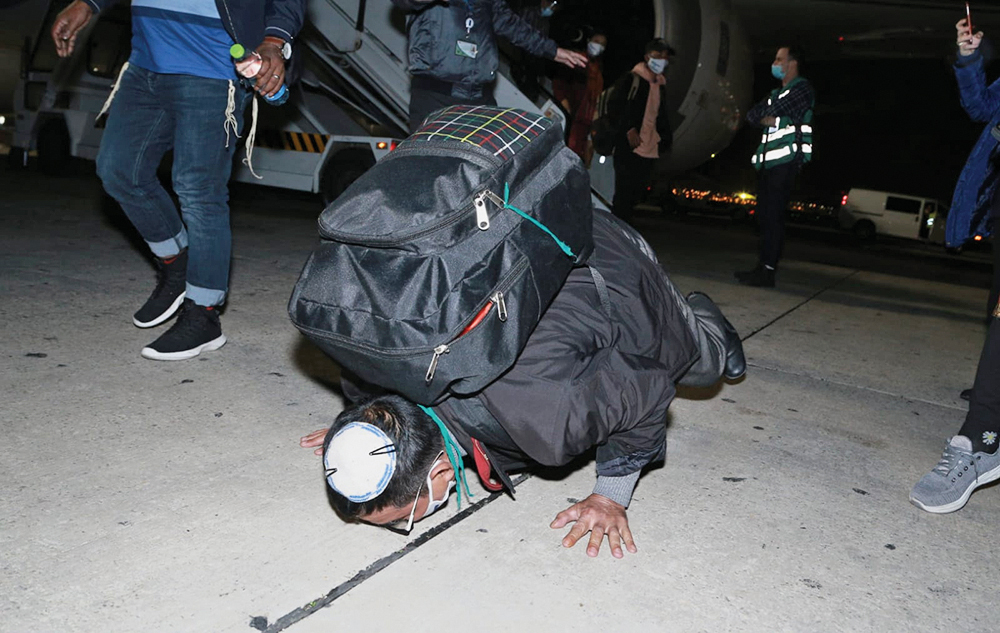
(Courtesy of Shavei Israel)
“Upon arrival in Israel, all of the Bnei Menashe immigrants undergo conversion by Israel’s Chief Rabbinate to remove any doubts regarding their personal status. Like every immigrant group, the Bnei Menashe face many challenges such as learning Hebrew, adjusting to a new mentality and a different lifestyle…. Shavei Israel does everything within our power to ensure that they integrate into Israeli society. We work closely with local municipal officials as well as the Ministry of Absorption, and the absorption of the Bnei Menashe has been immensely successful. The entire younger generation speaks English and uses smartphones in India, so they are quite familiar with Western ways, making their absorption a lot smoother. All of the young people either serve in the Israeli army or perform national service, and many go on to attend Israeli colleges and universities. A growing number have been marrying native-born Israelis or veteran immigrants from other countries, which is a welcome sign that they have become part and parcel of the fabric of Israeli society.”
For more information: www.shavei.org or write to [email protected].
Susan R. Eisenstein is a longtime Jewish educator, passionate about creating special, innovative activities for her students. She is also passionate about writing about Jewish topics and about Israel. She has two master’s degrees and a doctorate in education from Columbia University.












